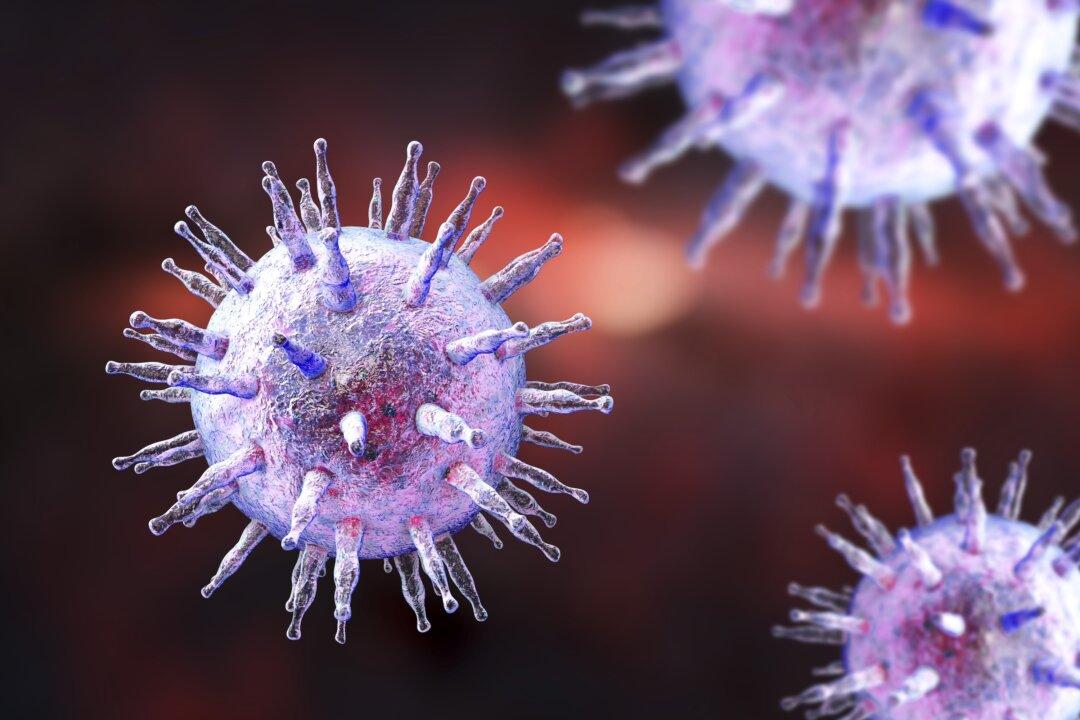
Viral infections are thought to be a central cause of between 10 to 20 percent of cancers worldwide, representing a significant portion of the global cancer burden.
A recent discovery may further our understanding of how viruses cause cancer.
Researchers from the Cleveland Clinic uncovered one of the mechanisms that a type of virus called Kaposi sarcoma-associated herpesvirus (KSHV) uses to induce cancer.
Jun Zhao, of the Cleveland Clinic Florida Research and Innovation Center, who holds a doctorate in genetic, molecular, and cellular biology is the study’s lead author.
Kaposi Sarcoma-Associated Herpesvirus
Kaposi sarcoma-associated herpesvirus, also known as human herpesvirus 8 (HHV8), is “A type of virus that causes Kaposi sarcoma (a rare cancer in which lesions grow in the skin, lymph nodes, lining of the mouth, nose, and throat, and other tissues of the body). Kaposi sarcoma-associated herpesvirus also causes certain types of lymphoma (cancer that begins in cells of the immune system),” according to The National Cancer Institute.Cancer cells replicate quickly and reprogram the body’s metabolism to help them grow and spread. Most viruses don’t produce their own energy or the molecules they need and therefore hijack the body’s cells to do the work for them. However, the researchers found that the KSHV virus assumes control of two host proteins (CDK6 and CAD) which causes the virus to replicate more quickly and the cells to multiply and spread out of control.
The news release also states that KSHV-induced cancers are “fast-acting, aggressive and difficult to treat,” and that an estimated 10 percent of people in North America and Northern Europe, and 50 percent of people in Africa have KSHV, although the numbers are thought to be much higher because the virus can present without symptoms and often goes undiagnosed.
Viruses and Cancer
In addition to KSHV, several other viruses are known to cause human cancers. According to the American Cancer Society, the following viruses can cause cancer in humans:- Human papillomaviruses
- Epstein-Barr virus
- Hepatitis B virus and hepatitis C virus
- Human immunodeficiency virus
- Human T-lymphotropic virus-1
- Merkel cell polyomavirus
Future Impact
The findings could lead to new options for the treatment of KSHV-associated cancers, which include Kaposi’s sarcoma, primary effusion lymphoma, and HHV8-associated multicentric Castleman disease. They could also potentially extend beyond KSHV-associated cancers to other viruses that cause cancer using the same or similar mechanisms.As for what the findings mean for the future, Mr. Zhao says, “Cellular metabolism could be hijacked by both viruses and cancers for pathogenesis. By investigating these metabolic rewiring mechanisms, we aim to find the Achilles’ heel of cancer-causing viruses and non-viral cancers. I’m excited to see what the future of this work holds.”
No comments:
Post a Comment